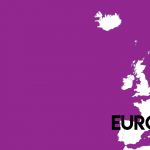As 2018 comes to an end, we all look back on the year we’ve had – and what a year we’ve had! E&M‘s Sarah Gerwens dives into 2018’s Google Searches – and what answers we can draw from the questions we ask.
At the end of each year, we turn around to take stock, to review what happened and preview what will come. Newspapers, TV programmes, and even music streaming services offer neatly packaged versions of the past twelve months for us to remember and reminisce. In the same vein, Google publishes which searches were trending over the past 365 days, broken down by country and category. The ranking is not absolute, but relative – so “Brexit” or “Donald Trump” are not necessarily on the lists. Instead, the top terms are those which were searched for most often compared to the previous year.
And, what did the world search for in 2018? Football, lots and lots of it. The world cup was trending topic number one. But we also wanted to know about hurricanes, Meghan Markle and Black Panther. The Austrians asked “what is love” but even more often wondered “what is lol”, while in Ireland some were more concerned with “what is the backstop”. Additionally, across the world we searched for the ones we lost in 2018: Avicii, Mac Miller, Stan Lee, Anthony Bourdain, XXXTentacion, Stephen Hawking, and Kate Spade all were trending search terms. With every use, search engines become chronicles of lives lived and lost, of questions we need answered right now right here. They capture what puzzles and moves us most in the moment. Search topics range from silly (“What do hedgehogs eat” – Switzerland) to serious (“What is happening in Syria” – India), reflecting how deeply ingrained search engines are into the way we make sense of the world.

Over the years, they have not only become powerful roadmaps of the internet, but also of our own desires, fears, and burning questions (“how old is Justin Timberlake” – Canada; “what is fascism” – Brasil). They made information limitlessly available and intimately bound to and by our own interests and opinions. While this makes them powerful and at times dangerous social and political tools, it also offers insight into us – the people that use search engines for everything from ordering the cheapest best red wine to proving that really, Pluto isn’t a planet, dad.
Googles trending terms are an ode to something maybe we all should do more often: Ask questions, be curious, find out more before we form an opinion. Whether we wonder “how to vote” (like the Americans, Mexicans, and Belgians did) or “how to floss dance” (like the Brits), the rankings are a reminder that we have not figured it all out; that we still sometimes need to ask the internet how Bitcoins work and what happens during a lunar eclipse (like the Germans).
With every use, search engines become chronicles of lives lived and lost, of questions we need answered right now right here.
But the rankings are also a powerful reminder that while the answers we find and give might vary greatly, the questions we ask do not. Because, in the end, we are all searching to find out about those who died and lived and who is winning the world cup, about rescued teenagers and royal weddings. Despite differences in opinion, in location, and language, what we searched for in 2018 is not so terribly different across Europe. Some of the topics and issues that moved us most (Avicii, the world cup, the royal wedding, election results) are shared across borders. Maybe there is a comfort in that, to imagine all of us out there, searching for answers (or, at least, “Chicken Breast recipes” – New Zealand). So as we look back at the old year and ahead to the new one, maybe we can focus not on the differences in the answers given, but the similarities of the questions asked.
Cover Photo: Niharb (Flickr); Licence: CC BY-NC-ND 2.0










